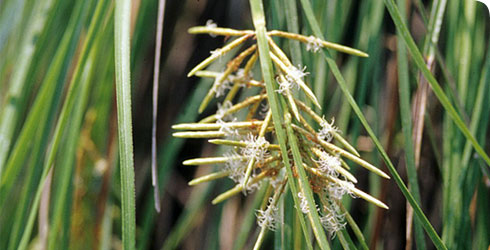Khaosokia caricoides
Khaosokia caricoides is a genus and species of the sedge family (Cyperaceae) that was first discovered in 2001 in Khao Sok National Park, southern Thailand.
It was initially overlooked as being a common species in the genus Carex until further collections were made in 2002.
It was a surprise to find a completely new genus in Asia, because the generic diversity of sedges in that part of the world is quite low.
It occurs on limestone cliffs that are only accessible by boat - the area was flooded in the 1980s to form a reservoir.
Ironically, although the flooding resulted in the loss of many hectares of forest, it led to the discovery of Khaosokia cariocoides - flooding allowed access to previously inaccessible cliffs, and brought the plant within reach of collectors.
The species was formally described by David Simpson, Kongkanda Chayamarit and John Parnell in 2005.
Species detail
This sedge is found scattered in crevices on sunny limestone cliffs, about 5m above water level, at altitudes of 60–80m.
-

Taxonomy
Khaosokia caricoides is a robust perennial with many drooping leaves and flowering stems. Find out more about the appearance of this unusual sedge.
-

Biology
Find out what little we know about the biology of this plant.
-

Conservation
Khaosokia caricoides is known from only one locality in the Khao Sok National Park, Thailand. Little is known about its ecological requirements, but climate change leading to reduced rainfall may affect its survival. Find out more.
-

References
Get reference material for Khaosokia caricoides.
Images
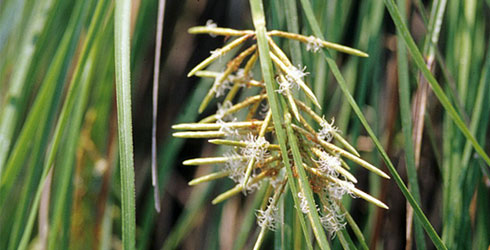
Khaosokia caricoides: male inflorescence.
© Rachun Pooma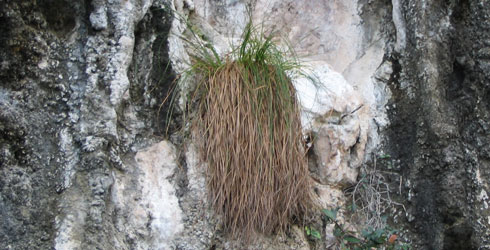
Khaosokia cariocoides in habitat on limestone cliff.
© Stuart Lindsay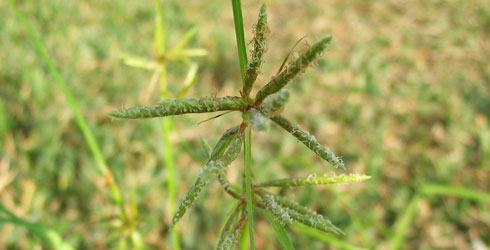
Khaosokia caricoides in habitat on limestone cliff.
© Stuart Lindsay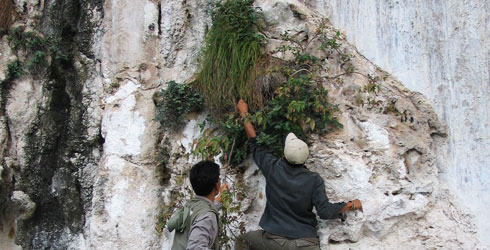
Collecting Khaosokia caricoides.
© Stuart LindsayAbout the author
David A Simpson
Assistant Keeper for Systematics
Herbarium, Library, Art and Archives
Royal Botanic Gardens, Kew
A word from the author
"This is a totally unexpected new genus in a challenging but fascinating family of plants."

This information was provided by the Royal Botanic Gardens, Kew in co-ordination with the e-Monocot project.
A Natural Environment Research Council-funded initiative to create a global online resource for monocot plants.
Toolbox
Glossary
Dioecious
Plant species in which the male and female plants are sexually distinct – the reproductive organs occur on different individuals.
Perianth
The outer envelope of a flower, consisting of either the calyx or the corolla, or both.
